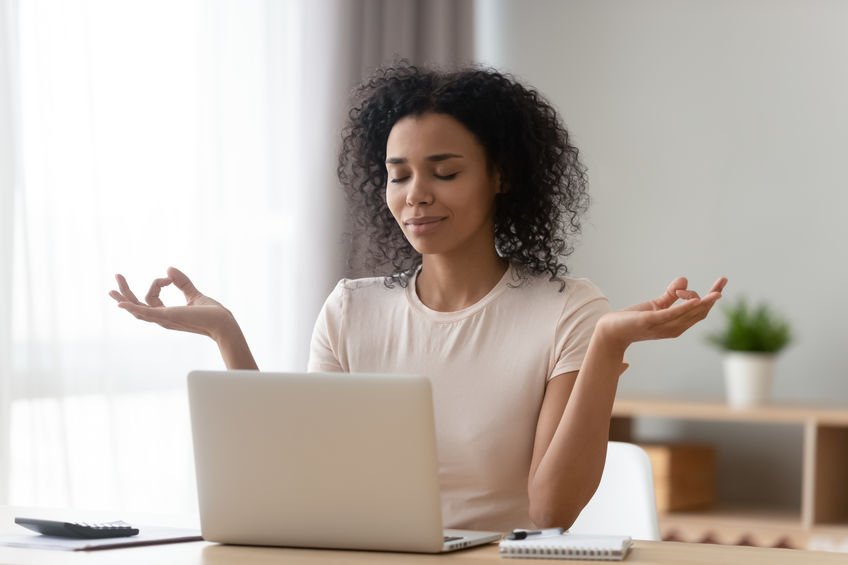For many, coping with change is hard enough, let alone the emotions many may face such as fear and anxiety due to changes in daily routines. Added stress from job loss and inability to cover expenses, illness, or loss of a loved, may cause anxiety and panic. Learn these six tips to help you cope with these emotions.
Breathing slowly and deeply. Anxiety can cause you to breathe very quickly, which makes both the mental and physical symptoms of a panic attack or generalized anxiety even worse. When you start to feel panicky, be sure to take slow, deep breaths to soothe your mind and body. Be sure to breathe using “belly breathing” also known as diaphragmatic breathing.
Stop and think. When your thoughts start spinning out of control, tell yourself to stop. Organize your thoughts and decide what you need to do to get yourself calm again. This is a way to interrupt thoughts and refocus.
Think positively. Push negative thoughts out of your mind, and remind yourself that you are in control. Think about times when you’ve been able to manage situations successfully and reduce anxiety. Stay in the present moment.
Take a break. If you need to leave a situation, do so or tell someone you need to leave. Don’t be afraid to ask for help. Allowing yourself to become more upset will not help if what you really need is to take a walk and blow off some steam. Allow yourself to have space as needed.
Relax your muscles. Anxiety causes your entire body to tense up, so make a conscious effort to relax each muscle from your toes all the way up to your neck and face. This will alleviate tension.
Get physical. Exercise can combat stress and anxiety. It can also improve your overall health and immune system. Even a brisk walk can help.
Tips to remember:
- Take deep breaths.
- Practice self-care.
- Get adequate sleep.
- Exercise.
- Talk positively to yourself.
- Acknowledge how you’re feeling.
- Practice mindfulness.
- Take lavender hot baths.
- Cut back on caffeine/nicotine/alcohol.
- Stay present.
- Ensure you’re getting proper nutrition.
- Try muscle relaxation techniques.
- Slow down.
- Picture your ‘safe place.’
- HALT (hungry, angry, lonely, tired).
- Close your eyes.



